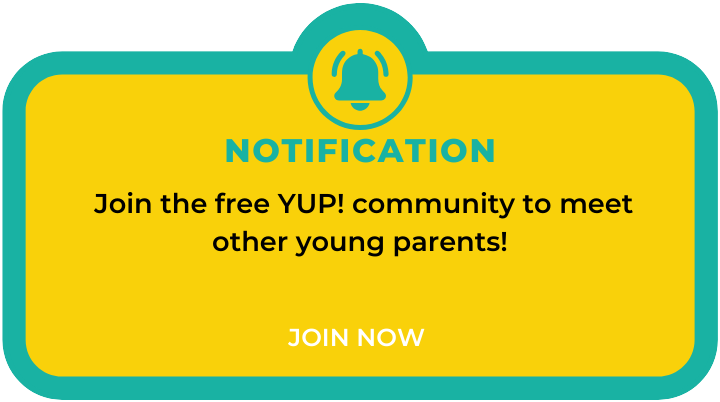Coping in Real Life: Finding Balance As a Parent

Parenthood is beautiful but it's no easy task! Let's be real, it can feel overwhelming at times between bills, long hours at work, school demands, sleepless nights, and children who depend on you and need your attention around the clock. Those pressures can build quickly and sometimes you just need a break. That's why taking care of yourself is just as important as taking care of your little ones.
When the stress piles up, many parents turn to different coping mechanisms to get through the day without falling apart. For some, that might mean hitting the gym, journaling, or practicing mindfulness. For others, it may look like scrolling on social media, binge watching their favorite show, or listening to music. There's no shame here — everyone has their own way of coping, what matters most is being aware of how often we rely on these outlets and making sure they don't interfere with our parenting or overall wellbeing.
It's also worth acknowledging that some coping habits like smoking, drinking, or other quick escapes may feel comforting in the moment when life gets heavy, but can sometimes become unhealthy over time. There's no judgement here — coping is survival and a natural response to stress. What matters most is recognizing how these habits impact you and being open to exploring outlets that help you feel in control, clear-minded and supported in the long run. It's all about awareness, balance, and choosing what truly restores you instead of just getting you by.
Young parents often feel guilty for needing time, space, or coping ‘selfishly’. But guilt doesn't make you a better parent, awareness does. Every coping mechanism serves a purpose. Maybe it's a way to relax, disconnect, escape for a moment, or find comfort. Sometimes it's just what we've always known or what feels easiest at the moment. You're allowed to have hard days, bad habits, and moments that don't look picture perfect. The goal isn't to eliminate every escape but to make sure the ways you cope allow you to be safe, present, and emotionally available for your children. Try noticing how those moments make you feel afterward.
Ask yourself:
- Does this help me show up better for my child?
- Do I feel better or worse afterward?
- Am I recharging or am I avoiding something?
Often without realizing it, over time even the habits that help us get by can start shaping how we feel, think, and show up. Sometimes coping mechanisms can slip into patterns that numb more than they heal. Because of this, it is important to reflect and be aware of our triggers and the coping mechanisms that we are using to deal with them.
Coping is human, it doesn't make you a bad parent. The real question is: How do you find balance without drowning in guilt and/ or remaining present for your children? Children notice how you cope and learn how to handle their own stress by watching you. When we find healthy ways to recharge, it shows them that stress is normal and manageable but doesn't have to control us. Kids don't need perfect parents, they need honest and realistic ones. Saying “I'm tired, so I'm taking a break”, teaches them that taking care of yourself is part of being responsible. You don't have to hide your stress; it's important to show that even when life is heavy, you can still handle it with awareness and care.
Healthy Coping Strategies for Finding Balance:
- Practice mindfulness — Pause and check in with yourself. Notice what you're feeling and when coping starts to feel like escaping. Take a few minutes to breathe, journal, pray, or meditate to calm your mind.
- Move Your body — Movement helps release stress, boost your mood, and clear your thoughts. Try dancing around the house, taking a short walk, stretching, or playing with your kids.
- Rest intentionally — Rest is not a reward; it's part of healing. Try to get quality sleep when you can and make space for brief, quiet moments that help you recharge mentally and emotionally.
- Engage in activities that restore you — Do things that help you feel grounded and joyful. Whether it’s listening to music, spending time outdoors, reading, or getting creative, choose what fills your cup.
- Reach out for support — Finding balance doesn't mean doing it alone. Sometimes, it means leaning on your support system for help, sharing what's heavy, or connecting with community resources that can lighten your load.
- Seek professional help — Sometimes the weight of life can feel like too much. If you’re having a hard time and experiencing ongoing sadness, anxiety, or emotional overwhelm, it's important to reach out to your healthcare provider or mental health professional. Know that you are not alone; support is out there and you deserve it.
- Be gentle with yourself — Remember balance isn’t about perfection; it’s about progress. Give yourself grace, patience, and permission to be human as you keep learning and growing.
Both escaping and recharging can feel good, but they serve different purposes. Escaping offers temporary relief, but can sometimes leave you feeling more disconnected or drained later on. Recharging helps you return more present, grounded, and restored. Finding balance means noticing which one you're doing and giving yourself grace regardless. Showing up with awareness and intention is what balance is all about. Every parent deserves space to breathe, process, and find what helps them feel okay.
Resources For Mental Health Support:
- 988 Suicide & Crisis Lifeime — Call or text 988 for free, confidential support 24/7.
- SAMHSA Helpline — Call 1-800-662-4357 for mental health and substance use support.
- NAMI HelpLine — Call 1-800-950-6264 or text “NAMI” to 62640 for free, confidential mental health guidance and support groups
